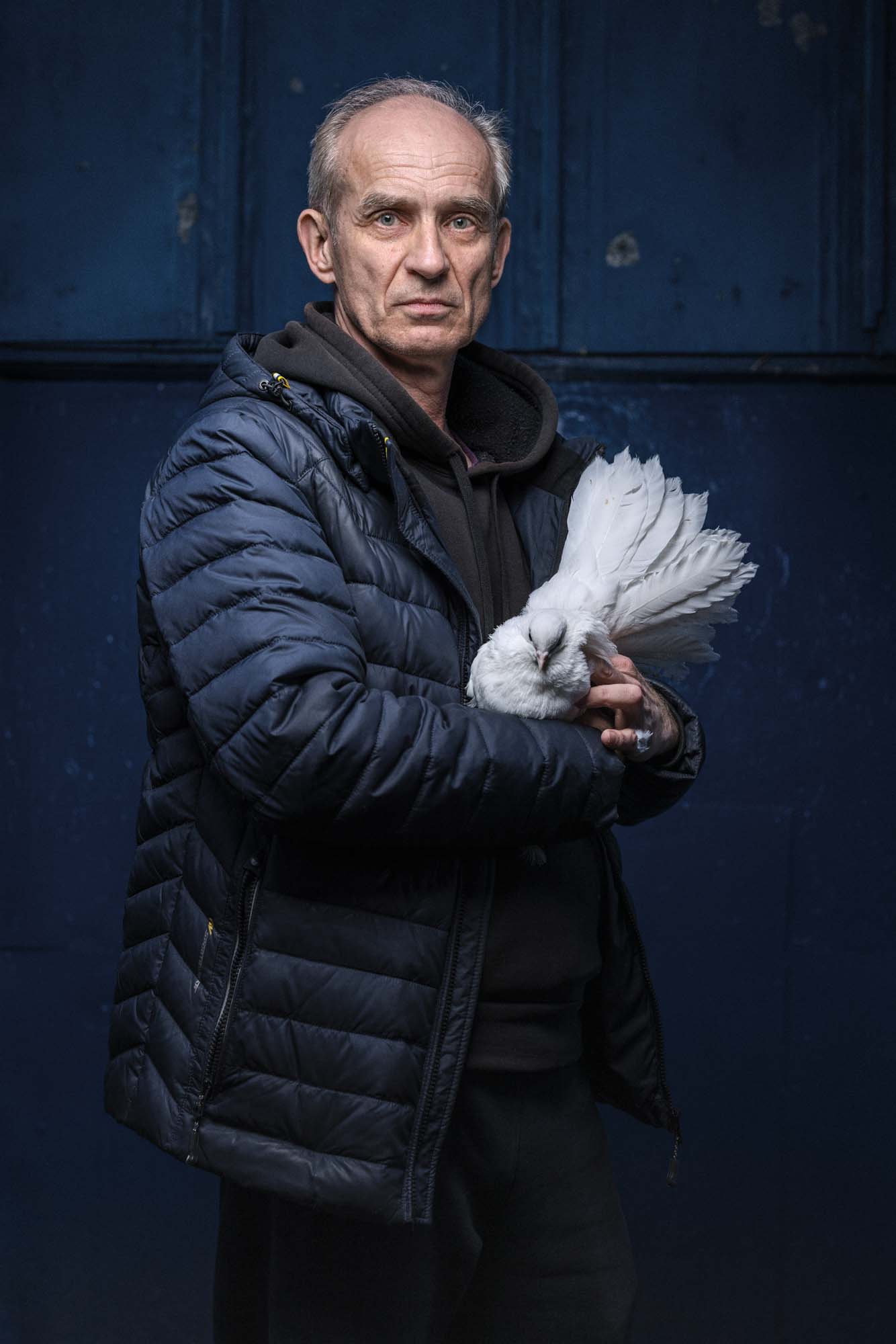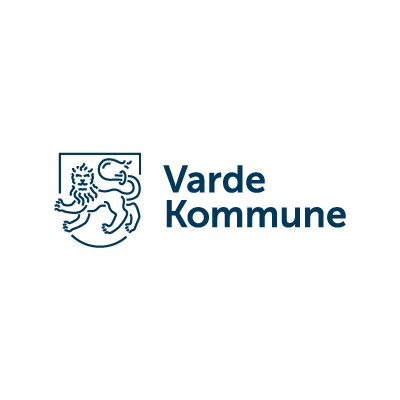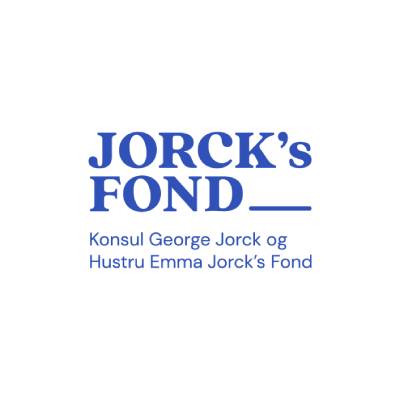Oleg is standing surrounded by the destroyed, bombed buildings of Kharkiv. In the middle of the deserted and ruined city, close to a playground made too dangerous for children by the grenade splinters that adorn the playing equipment, Oleg is standing next to a two-story construction. The house is not too big, measuring approximately 2 x 2 meters, but it is filled with blinding white doves. While the war is continuing in full force only 150 km away, and though some missiles are still being sent towards Kharkiv, Oleg comes here twice a day to take care of his doves.
Home
Oleg has lived in this district of Kharkiv since it first began to develop, 32 years ago. He moved here with his wife and their 4 months old son. His mother and his sister have also been living in the area, and when his son moved out and settled down with his own family, he stayed close by. Now, Oleg’s apartment is too destroyed to live in, and he has moved in with his mother. His wife has moved home to her own parents to take care of them, and his son has moved away, too afraid to stay in the area with a small child to take care of.
There are very few people left in the city, mainly those who cannot afford to move away. It feels abandoned, with no cars and very few people in the street. Some cranes have been set up to start the work of demolishing the ruined buildings, but there are very few resources for the needed rebuilding as long as the war keeps going, with no end in sight.
The doves
Oleg climbs up onto the roof of the dovecote, showing the different holes and opening and closing the doors. He points and feels his way to where grenade sprinters have penetrated the walls. He shows where a dove is nesting, an egg, white and round, lying beneath it. During his demonstration, a dove climbs out of the house and looks at all the commotion. Before the war, Oleg was a well-known man in the pigeon world. He would travel all around Ukraine to participate in competitions and show off the results of more than 30 years of selection and breeding.
Oleg Gavrishenko
The doves are a part of my heart.
Oleg is happy to showcase the doves. He grabs one to sling it up into the air, making it soar. He takes a dove in his hands to show the tail feathers, spreading them and arranging them like a deck of cards or an old fan. The doves remind him of his childhood, he explains when asked about what fascinates and draws him to the animals. Though it is a demanding hobby, requiring him to visit them twice a day, thrice if there are any baby pigeons, he continues to tend to the animals. “They are a part of my heart,” he explains. “I cannot stop taking care of the doves; I will continue to help them and feed them, even in the face of difficulties.” He pauses for a moment and continues, “to me, the doves are a symbol of life and peace.”
12 out of 40
The first four days of the war, Oleg spent in a shelter together with his wife, mother, sister and his son and the son’s family. Afterwards, the son decided to leave the area, and Oleg’s wife went to go take care of her parents who are both over 80 years old. Oleg decided to stay with his sister and mother. After another week, the building they were living in was completely destroyed, and they were forced to also flee. Booking a taxi for a very large amount of money, they in the end managed to go to a relative’s house, located in another district of Kharkiv. Because the car refused to stop closer than half a kilometer away from their home, Oleg had to transport his elderly mother on a sled, pulling her to the car.
Oleg Gavrishenko
I managed to go back and save 12 of the 40 doves. The rest starved to death as I couldn't get back for months because of the bombardments.
During the first two weeks they lived at the relative’s home, Oleg went back to their apartments three times to bring more of their things and to feed the doves he had had to leave behind. As he had needed to pull his mother on the sled, they had only been able to bring the most necessary items with them. With municipal transport out of service, he had to walk the 16 kilometers back and forth. During his travels to and from the apartment, artillery shelling was still going on, so he was forced to move fast. The last time he went, the district was hit by very heavy shelling, and he had to hide. One round hit the playground and splintered, and because he had been in the army in his youth, he knew how dangerous the splinters were. He continued to hide as a house was hit and a big cement panel fell down, and he realized his cover was not good enough. Admitting to himself this would be his last time back for a long time, he took 12 of the 40 doves that were living in the dovecote with him and left as much food as he could for the remaining animals. He closed the house and left. Not being able to come back for the next half year, the rest of his pigeons died from hunger.
Coming back
The forces allowed civilians to come back to the district at the end of May when the rounds of shelling were lighter. Oleg and his mother returned in September, when almost all of the utilities were working again. When asked about the war, Oleg explains that it feels like a bad dream. “A dream of indescribable horror,” he says, “it feels like I am always just about to open my eyes and see everything as they were before – the green trees, the many children coming here to play with the doves, the clean city, the happy people and the cars on the street. Life going on.” Oleg explains that he hasn’t seen the bodies of any civilians, but when he had to walk back and forth while the district was being destroyed, he saw a 16-floor building being bombed, burning, while people had hid inside. He also passed the bodies of fallen Ukrainian soldiers in the streets, covered by blankets.
Oleg Gavrishenko
Please do not give up, please keep on paying attention to what is going on here.
The hope for Oleg is that things will look up for the children and for Ukraine. This hope is what he is living for and which helps him move forward: “A blooming Ukraine, a prosperous Ukraine.” Oleg emphases that he appreciates the help and support Ukraine has received from the outside world. “It is very important to Ukraine, please do not give up, please keep on paying attention to what is going on here,” he asks.
Voices of the future
Portraits & stories by Martin Thaulow
Translations Ukrainian Katerina Chalenko
Stories in English Amalie Pi Sørensen
Partners

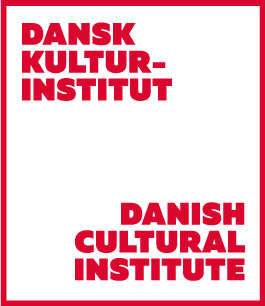
Backed by
Олег
(57 років), харків'янин
Голуби - це символ життя і миру.
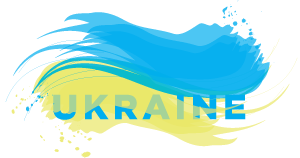
language
ПОРТРЕТ ЗРОБЛЕНИЙ МАРТІНОМ ТАУЛОУ
Олег стоїть в оточенні зруйнованих, розбомблених будівель Харкова. Олег стоїть біля двоповерхового будиночку, посеред безлюдного і зруйнованого міста, що розташований поруч з дитячим майданчиком, який став надто небезпечним для дітей через уламки гранат, що його “прикрашають”. Будиночок не надто великий, розміром приблизно 2 х 2 метри, і в ньому живуть білі голуби. Хоча війна триває всього за 150 км від нього, і хоча ракети все ще летять у бік Харкова, Олег приходить сюди двічі на день, щоб подбати про своїх голубів.
Дім
Олег живе в цьому районі Харкова відтоді, як він почав розбудовуватися, ще 32 роки тому. Він переїхав сюди з дружиною та 4-місячним сином. Його мати та сестра також жили в цьому районі, а коли син Олега виїхав і оселився з власною сім'єю, сам чоловік залишився жити неподалік. Зараз квартира Олега занадто зруйнована, щоб у ній можна було жити, і він переїхав до своєї матері. Його дружина переїхала до своїх батьків, щоб піклуватися про них, а син Олега виїхав, бо боїться залишатися в цьому районі з маленькою дитиною.
У місті залишилося дуже мало людей, переважно ті, хто не може дозволити собі переїхати. Місто здається покинутим, без машин, а також дуже мало людей на вулицях. Було встановлено кілька кранів, щоб розпочати роботи зі знесення зруйнованих будівель. Але доки триває війна, кінця якої не видно, то й ресурсів для необхідної відбудови дуже мало.
Голуби
Олег вилазить на дах голуб’ятника, показує різні отвори, відчиняє і зачиняє двері. Він показує стіни, що пробиті уламками гранат. Він показує, де гніздиться голуб, а під ним лежить біле і кругле яйце. Доки Олег нам все це показує, голуб вилітає із голуб’ятні і дивиться на всю цю метушню. До війни Олег був відомою людиною в “голубиному світі”. Він їздив по всій Україні, брав участь у змаганнях і демонстрував результати більш ніж 30-річної селекції та розведення.
Олег Гаврищенко
Вони - частина мого серця.
Олег із задоволенням демонструє голубів. Він бере одного з них, щоб підкинути в повітря, змушуючи його злетіти. Олег бере іншого голуба в руки, щоб показати хвостове пір'я, розправляючи його і укладаючи, як колоду карт або старе віяло. Голуби нагадують йому про дитинство -, пояснює він,- коли його запитують про те, що зачаровує і приваблює його в цих птахах. Хоча це хобі вимагає від нього багато зусиль (адже він відвідує їх двічі на день, а якщо є пташенята, то й тричі), він продовжує доглядати за тваринами. “Вони - частина мого серця”, - пояснює він. “Я не можу перестати піклуватися про голубів; я буду продовжувати допомагати їм і годувати їх, навіть якщо буде багато труднощів". Він робить паузу і продовжує: “Для мене голуби - це символ життя і миру”.
12 з 40
Перші чотири дні війни Олег провів у бомбосховищі разом із дружиною, матір'ю, сестрою, сином і його сім'єю. Згодом син вирішив виїхати з району, а дружина Олега поїхала доглядати за своїми батьками, яким вже більше ніж 80 років. Олег вирішив залишитися з сестрою та матір'ю. Ще через тиждень будинок, в якому вони жили, був повністю зруйнований, і вони були змушені тікати. Замовивши таксі за дуже великі гроші, вони врешті-решт змогли дістатися до будинку, де жив його родич, що розташований в іншому районі Харкова. Оскільки машина відмовилася зупинитися ближче, ніж за півкілометра від їхнього будинку, Олегу довелося перевозити свою літню матір на санчатах, тягнучи її до машини.
Олег Гаврищенко
Мені вдалося повернутися і врятувати 12 з 40 голубів. Решта - померли від голоду, бо в мене не було змоги повернутися через обстріли, що тривали місяцями.
Протягом перших двох тижнів, коли вони жили у родичів, Олег тричі повертався до їхньої квартири, щоб привезти більше речей і погодувати голубів, яких йому довелося залишити. Оскільки йому доводилося тягнути матір на санчатах, вони змогли взяти з собою лише найнеобхідніші речі. Муніципальний транспорт не працював, і Олегу довелося долати 16 кілометрів туди і назад пішки. Артилерійські обстріли не припинялися під час його переміщення, тому він був змушений рухатися дуже швидко. Коли він востаннє йшов годувати голубів, в районі був дуже сильний обстріл, і Олегу довелося ховатися. Один снаряд влучив у дитячий майданчик і потім розлетівся на шматки. А оскільки Олег служив в армії в юності, то знав, наскільки небезпечними є уламки від снарядів. Коли в будинок влучили снарядом і впала велика цементна панель, він ще продовжував ховатися. Тоді Олег зрозумів, що його укриття було недостатньо надійним. Зізнавшись собі, що на довгий час це буде його останнє повернення, він взяв з собою 12 з 40 голубів, які жили в голуб’ятні, і залишив решті стільки їжі, скільки зміг. Він зачинив будинок і пішов. В Олега не було змоги повернутися протягом наступних півроку, тому решта голубів померли від голоду.
Повернення
Управління міста дозволило цивільному населенню повернутися в район наприкінці травня, коли обстріли стали менш інтенсивними. Олег з матір'ю повернулися у вересні, коли майже всі комунальні служби знову запрацювали. Коли його запитують про війну, Олег пояснює, що вона схожа на страшний сон. “Сон невимовного жаху” -, каже він, - “мені здається, що я ось-ось розплющу очі і побачу все, як було раніше: зелені дерева, багато дітей, які приходять сюди погратися з голубами, чисте місто, щасливих людей і машини на вулицях. Що життя продовжується”. Олег пояснює, що він не бачив тіл цивільних, але коли йому доводилося ходити до свого дому, коли район руйнували і обстрілювали, він бачив 16-поверховий будинок, який розбомбили, і як він горів, а люди ховалися всередині. Він також проходив повз тіла загиблих українських солдат на вулицях, що були накриті ковдрами.
Олег Гаврищенко
Будь ласка, не здавайтеся, будь ласка, продовжуйте звертати увагу на те, що тут відбувається
Надія Олега полягає в тому, що все зміниться на краще для дітей і для України. Ця надія - це те, заради чого він живе і що допомагає йому рухатися вперед: "Квітуча Україна, процвітаюча Україна". Олег підкреслює, що цінує допомогу і підтримку, яку Україна отримала від інших країн світу. “Це дуже важливо для України, будь ласка, не здавайтеся, будь ласка, продовжуйте звертати увагу на те, що тут відбувається”, - просить він.
Підтримайте нашу роботу
Голоси майбутнього
Portraits & stories by Martin Thaulow
Translations Ukrainian Katerina Chalenko
Stories in English Amalie Pi Sørensen
Партнер


За підтримки
Oleg steht inmitten der zerstörten, bombardierten Gebäude von Charkiw. Mitten in der verlassenen und zerstörten Stadt, in der Nähe eines Spielplatzes, der durch die Granatsplitter, welche die Spielgeräte zieren, für Kinder zu gefährlich ist, steht Oleg neben einem zweistöckigen Gebäude. Das Haus ist nicht besonders groß, etwa 2 x 2 Meter, aber es ist mit blendend weißen Tauben gefüllt. Während der Krieg nur 150 km entfernt mit voller Wucht weitergeht und noch immer Raketen in Richtung Charkiw abgeschossen werden, kommt Oleg zweimal am Tag hierher, um sich um seine Tauben zu kümmern.
Zuhause
Oleg lebt in diesem Bezirk von Charkiw, seit er sich vor 32 Jahren zu entwickeln begann. Er zog mit seiner Frau und ihrem 4 Monate alten Sohn hierher. Seine Mutter und seine Schwester lebten ebenfalls in der Gegend, und als sein Sohn auszog und sich mit seiner eigenen Familie niederließ, blieb er in der Nähe. Jetzt ist Olegs Wohnung zu stark zerstört, um darin zu leben, und er ist zu seiner Mutter gezogen. Seine Frau ist zu ihren eigenen Eltern gezogen, damit sie sich um sie kümmern kann, und sein Sohn ist weggezogen, weil er zu viel Angst hat, in der Gegend zu bleiben und sich um ein kleines Kind zu sorgen.
Es gibt nur noch sehr wenige Menschen in der Stadt, hauptsächlich diejenigen, die es sich nicht leisten können, wegzuziehen. Die Stadt wirkt verlassen, es gibt keine Autos und nur wenige Menschen auf der Straße. Einige Kräne wurden aufgestellt, um mit dem Abriss der zerstörten Gebäude zu beginnen, aber es gibt nur sehr wenige Mittel für den notwendigen Wiederaufbau, solange der Krieg andauert und kein Ende in Sicht ist.
Die Tauben
Oleg klettert auf das Dach des Taubenschlags, zeigt auf die verschiedenen Löcher, öffnet und schließt die Türen. Er zeigt und ertastet die Stellen, an denen Granaten in die Wände eingeschlagen sind. Er zeigt, wo eine Taube nistet, unter der ein Ei liegt, weiß und rund. Während seiner Erklärung kommt eine Taube aus dem Haus geflogen und schaut sich das ganze Geschehen an. Vor dem Krieg war Oleg ein bekannter Mann in der Taubenszene. Er reiste durch die ganze Ukraine, um an Wettbewerben teilzunehmen und die Ergebnisse von mehr als 30 Jahren Selektion und Zucht zu präsentieren.
Oleg Gavrishenko
Die Tauben sind ein Teil meines Herzens.
Oleg freut sich, dass er die Tauben vorführen kann. Er ergreift eine, um sie in die Luft zu schleudern, so dass sie auffliegt. Er nimmt eine Taube in die Hand, um die Schwanzfedern zu zeigen, breitet sie aus und arrangiert sie wie ein Kartenspiel oder einen alten Fächer. Die Tauben erinnern ihn an seine Kindheit, erklärt er auf die Frage, was ihn an den Tieren fasziniert und anzieht. Obwohl es ein anstrengendes Hobby ist, bei dem er zweimal am Tag nach ihnen sehen muss, dreimal, wenn es Babytauben gibt, kümmert er sich weiter um die Tiere. “Sie sind ein Teil meines Herzens”, erklärt er. “Ich kann nicht aufhören, mich um die Tauben zu kümmern; ich werde ihnen weiterhin helfen und sie füttern, auch wenn es schwierig wird.” Er hält einen Moment inne und fährt fort: ”Für mich sind die Tauben ein Symbol des Lebens und des Friedens.”
12 von 40
Die ersten vier Tage des Krieges verbrachte Oleg zusammen mit seiner Frau, seiner Mutter, seiner Schwester und seinem Sohn und dessen Familie in einem Schutzraum. Danach beschloss der Sohn, das Gebiet zu verlassen, und Olegs Frau ging, um sich um ihre Eltern zu kümmern, die beide über 80 Jahre alt sind. Oleg beschloss, bei seiner Schwester und seiner Mutter zu bleiben. Nach einer weiteren Woche wurde das Gebäude, in dem sie wohnten, völlig zerstört, und sie waren gezwungen, ebenfalls zu fliehen. Sie bestellten ein Taxi für sehr viel Geld und schafften es schließlich, zum Haus eines Verwandten in einem anderen Stadtteil von Charkiw zu gelangen. Da sich das Auto weigerte, näher als einen halben Kilometer von ihrem Haus entfernt anzuhalten, musste Oleg seine ältere Mutter auf einem Schlitten transportieren und sie zum Auto ziehen.
Oleg Gavrishenko
Es gelang mir, zurückzukehren und 12 der 40 Tauben zu retten. Die übrigen verhungerten, da ich aufgrund der Bombardements monatelang nicht zurückkehren konnte.
In den ersten zwei Wochen, in denen sie bei dem Verwandten wohnten, kehrte Oleg dreimal in ihre Wohnung zurück, um weitere Sachen zu holen und die Tauben zu füttern, die er zurücklassen musste. Da er seine Mutter auf dem Schlitten ziehen musste, konnten sie nur die nötigsten Dinge mitnehmen. Da die städtischen Verkehrsmittel außer Betrieb waren, musste er die 16 Kilometer hin und zurück zu Fuß zurücklegen. Auf dem Weg zur und von der Wohnung wurde er noch immer von Artillerie beschossen, so dass er gezwungen war, sich schnell zu bewegen. Als er das letzte Mal dorthin ging, wurde das Viertel sehr stark beschossen, und er musste sich verstecken. Ein Geschoss schlug auf dem Spielplatz ein und zersplitterte, und da er in seiner Jugend bei der Armee gewesen war, wusste er, wie gefährlich die Splitter waren. Er versteckte sich weiter, als ein Haus getroffen wurde und eine große Zementplatte herunterfiel, und ihm wurde klar, dass seine Deckung nicht gut genug war. Er gestand sich ein, dass dies für lange Zeit seine letzte Rückkehr sein würde, nahm 12 der 40 Tauben, die in dem Taubenschlag lebten, mit und ließ so viel Futter wie möglich für die übrigen Tiere zurück. Er schloss das Haus und ging fort. Da er das nächste halbe Jahr nicht zurückkehren konnte, starben die restlichen Tauben vor Hunger.
Zurückkommen
Ende Mai, als der Beschuss nachließ, erlaubten die Streitkräfte der Zivilbevölkerung, in den Bezirk zurückzukehren. Oleg und seine Mutter kehrten im September zurück, als fast alle Versorgungseinrichtungen wieder funktionierten. Auf die Frage nach dem Krieg erklärt Oleg, dass er sich wie ein schlechter Traum anfühlt. “Ein unbeschreiblich schrecklicher Traum”, sagt er, “es fühlt sich an, als würde ich immer wieder die Augen öffnen und alles so sehen, wie es vorher war - die grünen Bäume, die vielen Kinder, die hierher kommen, um mit den Tauben zu spielen, die saubere Stadt, die glücklichen Menschen und die Autos auf der Straße. Das Leben geht weiter.” Oleg erklärt, dass er keine Leichen von Zivilisten gesehen hat, aber als er während der Zerstörung des Viertels hin und her laufen musste, sah er, wie ein 16-stöckiges Gebäude bombardiert wurde und brannte, während sich Menschen darin versteckt hatten. Er kam auch an den Leichen gefallener ukrainischer Soldaten vorbei, die mit Decken zugedeckt auf der Straße lagen.
Oleg Gavrishenko
Bitte geben Sie nicht auf, bitte achten Sie weiterhin darauf, was hier passiert.
Oleg hofft, dass es für die Kinder und für die Ukraine wieder aufwärts gehen wird. Diese Hoffnung ist es, für die er lebt und die ihm hilft, voranzukommen: “Eine blühende Ukraine, eine wohlhabende Ukraine.” Oleg betont, dass er die Hilfe und Unterstützung, um die sich die Ukraine bemüht, sehr zu schätzen weiß. “Es ist sehr wichtig für die Ukraine, bitte geben Sie nicht auf, bitte achten Sie weiterhin darauf, was hier passiert”, bittet er.
Stimmen der Zukunft
Porträts & Geschichten von Martin Thaulow
Übersetzungen ins Ukrainische Katerina Chalenko
Geschichten auf Englisch Amalie Pi Sørensen
Partner


unterstützt von
Oleg står omgivet af ødelagte og bombede bygninger i Kharkiv. Midt i et forladte og ruineret boligområde, med en legeplads, der er blevet for farlig for børnene på grund af granatsplinter, der har gennemboret legeredskaberne og efterladt barber skarpe metalkanter. Oleg står ved siden af en to-etagers konstruktion. Dueslaget er ikke stort, det måler cirka 2 x 2 meter, og det er fyldt med blændende hvide duer. Mens krigen fortsætter for fuld kraft kun 150 km væk, og selvom der stadig bliver affyret missiler mod Kharkiv, så kommer Oleg hér to gange om dagen for at passe sine duer.
Hjemmet
Oleg har boet i boligkvarteret, siden det først begyndte at udvikle sig for 32 år siden. Han flyttede hertil med sin kone og deres 4 måneder gamle søn. Hans mor og søster har også boet i kvarteret, og da hans søn flyttede hjemmefra og slog sig ned med sin egen familie, blev han boende nogle opgange væk. Nu er Olegs lejlighed ødelagt, og han er flyttet ind hos sin mor i den anden ende af boligområdet. Hans kone er flyttet hjem til sine egne forældre for at passe dem, og hans søn er flyttet langt væk. De var alt for bange til at blive i området med et lille barn.
Et meget lille antal er blevet tilbage i kvarteret, hovedsageligt de fattigeste, som ikke har haft råd til at flytte eller flygte. Det føles forladt, uden biler og få mennesker ses på gaden. Nogle kraner er opstillet for at begynde arbejdet med at nedrive af de ødelagte bygninger, som ikke kan laves. Men så længe krigen fortsætter uden en ende i sigte, så er der mangel på de nødvendige ressourcer til genopbygningen.
Duerne
Oleg kravler op på taget af dueslaget for at vise de forskellige huller, mens han åbner og lukker dørene. Han peger og inspicerer med fingerne de steder, hvor granatsplinter har trængt igennem væggene. Han viser, hvor en due ligger og ruger på et rundt og hvidt æg, og under hans demonstration kommer en due ud af huset for at se på al tumulten. Før krigen var Oleg et kendt ansigt i dueverdenen. Han rejste rundt i hele Ukraine for at deltage i konkurrencer og for at vise resultaterne af mere end 30 års avl og pleje.
Oleg Gavrishenko
Duerne er en del af mit hjerte.
Oleg er glad for at vise duerne frem. Han griber en for at kaste den op i luften, så den kan flyve. Han tager endnu en due i hænderne for at vise halefjerene. Han spreder fjernen ud og arrangerer dem som et kortspil eller en gammel vifte. Duerne minder ham om hans barndom, forklarer han, når han bliver spurgt om, hvad der fascinerer og tiltrækker ham ved dyrene. Selvom det er en krævende hobby, der fordrer, at han besøger dem to gange om dagen, tre gange hvis der er dueunger, fortsætter han med at passe på dyrene.“De er en del af mit hjerte,” forklarer han. “Jeg kan ikke stoppe med at tage mig af duerne; jeg vil fortsætte med at hjælpe dem og fodre dem, selv i vanskelige tider.” Han holder en pause et øjeblik og fortsætter: “For mig er duerne et symbol på liv og fred.”
12 ud af 40
De første fire dage af krigen tilbragte Oleg i et beskyttelsesrum sammen med sin kone, mor, søster og sin søn og sønnens familie. Derefter besluttede sønnen at forlade området, og Olegs kone tog væk for at tage sig af sine forældre, der begge er over 80 år gamle. Oleg besluttede at blive hos sin søster og mor. Efter endnu en uge blev bygningen, som de søgte tilflugt i fuldstændig ødelagt, og de blev tvunget til også at flygte. Det lykkedes til sidst ved at betale en stor sum penge for en taxa, som kørte dem til en slægtnings hus, der ligger i et andet distrikt i Kharkiv. Da taxaen nægtede at komme tættere på deres hjem end en halv kilometer, så måtte Oleg trække sin gamle mor på en slæde hen til opsamlingspunktet.
Oleg Gavrishenko
Duerne er en del af mit hjerte.
I de første to uger boede de hos deres slægtning og Oleg vendte tilbage til deres lejlighed tre gange for at hente flere af deres ting og fodre de duer, han havde været nødt til at efterlade. Da han trak sin mor på slæden, kunne de kun tage det mest nødvendige med dem. Da den kommunale transport ikke fungerede, måtte han gå de 16 kilometer frem og tilbage hver gang. Under turene til og fra lejligheden var der stadig artilleriangreb, så han var tvunget til at bevæge sig hurtigt. Den sidste gang han tog tilbage til lejligheden blev kvarteret ramt af meget kraftig beskydning, hvor Oleg måtte søge i skjul. Angrebet ramte legepladsen ved dueslaget, og kun fordi han havde været i hæren i sin ungdom, vidste han, hvor farlige granatsplinterne var. Boligkomplekset som udgjorde Olegs skjul blev ramt, og da store betonelementer faldt ned tæt på, indså han, at han ikke var i sikkerhed. Han måtte erkende, at det ville være sidste gang i lang tid, han kunne komme tilbage. Det lykkedes Oleg at tage 12 af de 40 duer fra dueslaget med sig. Inden han lukkede døren og flygtede igen, efterlod han så meget mad som muligt til de tilbageværende fugle. Da han ikke kunne komme tilbage de næste seks måneder, døde de resterende duer af sult.
tilbage igen
I slutningen af maj 2022, da bombardementerne af boligområdet var aftagende tillod de ukrainske styrker, at civile kunne komme ind i det ødelagte boligkvarter igen. Oleg og hans mor vendte først tilbage i september, hvor næsten alle forsyningerne i morens lejlighed fungerede igen. Når han bliver spurgt om krigen, forklarer Oleg, at det føles som en dårlig drøm. “En drøm fyldt med ubeskrivelige rædseler,” siger han, “det føles altid som om, jeg er lige ved at åbne mine øjne og se alting, som det var før - de grønne træer, de mange børn, der kom her for at lege med duerne, den rene by, de glade mennesker og bilerne på gaden. Livet, der fortsætter.” Oleg forklarer, at han ikke har set ligene af civile, men da han tog frem og tilbage, mens kvarteret blev ødelagt, så han en 16-etagers bygning blive bombet og bryde ud i brand, mens folk havde gemt sig inde i den. Han passerede også de døde ukrainske soldater i gaderne, som var tildækket af tæpper.
Oleg Gavrishenko
I må ikke give op på os, bliv ved med at holde øje med, hvad der sker her.
Oleg håber, at tingene kommer til at se bedre ud for børnene og ikke mindst for Ukraine. Det er dét håb, som holder ham i live og hjælper ham til at komme videre: “Et blomstrende Ukraine, et velstående Ukraine!” Oleg understreger, at han sætter pris på den hjælp og støtte, Ukraine har modtaget fra resten af verden. “Det er meget vigtigt for Ukraine, I må ikke give op på os, bliv ved med at holde øje med, hvad der sker her,” beder han.
Voices of the future
Portrætter og historier af Martin Thaulow
Oversættelser ukrainsk Katerina Chalenko
Historier på engelsk Amalie Pi Sørensen
Partnere


støttet af
Oļegs
(57) no Harkivas, UKRAINĀ
Baloži ir dzīvības un miera simbols.

language
PORTRETA AUTORS MARTIN THAULOW
Oļegs stāv Harkivas sagrauto, sabombardēto ēku ielokā. Neapdzīvotās un izpostītās pilsētas vidū, netālu no rotaļu laukuma, kas bērniem kļuvis pārāk bīstams, jo rotaļu iekārtas “rotā” granātu atlūzas, Oļegs stāv blakus divstāvu būvei. Māja nav pārāk liela, tās izmēri ir aptuveni 2 x 2 metri, taču tā ir piepildīta ar žilbinoši baltiem baložiem. Lai gan karš pilnā sparā turpinās tikai 150 km attālumā un lai gan dažas raķetes joprojām tiek sūtītas uz Harkivu, Oļegs šeit ierodas divas reizes dienā, lai rūpētos par saviem baložiem.
Mājas
Oļegs dzīvo šajā Harkivas rajonā kopš tā izveides pirms 32 gadiem. Viņš šeit pārcēlās kopā ar sievu un četrus mēnešus veco dēlu. Šajā rajonā ir dzīvojusi arī viņa māte un māsa, un dēls pārcēlās un apmetās uz dzīvi kopā ar savu ģimeni, lai būtu netālu no viņām. Tagad Oļega dzīvoklis ir pārāk izpostīts, lai tajā varētu dzīvot, un viņš ir pārcēlies pie mātes. Viņa sieva ir pārcēlusies uz savu vecāku mājām, lai rūpētos par viņiem, un dēls ir devies prom, pārāk baidīdamies palikt šajā rajonā ar mazu bērniņu, par kuru jārūpējas.
Pilsētā ir palicis ļoti maz cilvēku, galvenokārt tie, kas nevar atļauties pārcelties. Tā šķiet pamesta, tajā nav automašīnu un ielas ir pustukšas. Ir uzstādīti daži celtņi, lai sāktu sagruvušo ēku nojaukšanas darbus, taču ir ļoti maz līdzekļu nepieciešamajai atjaunošanai, kamēr turpinās karš, kuram nav redzamas beigas.
Baloži
Oļegs uzkāpj uz baložu mājas jumta, parādot dažādus caurumus un atverot un aizverot durvis. Viņš norāda un pieskaras vietām, kur sienas caururbušas granātu atlūzas. Viņš parāda, kur ligzdo balodis, zem kura atrodas balta un apaļa ola. Kamēr viņš to izrāda, balodis izlien ārā no mājas un aplūko visu šo burzmu. Pirms kara Oļegs bija pazīstams cilvēks baložu pasaulē. Viņš apceļoja visu Ukrainu, lai piedalītos sacensībās un rādītu vairāk nekā 30 gadu selekcijas un audzēšanas rezultātus.
Oļegs Gavrišenko
Viņi ir daļa no manas sirds.
Oļegs ar prieku izrāda baložus. Viņš paķer vienu, lai to palaistu gaisā un liktu tam planēt. Viņš paņem balodi rokās, lai parādītu astes spalvas, izplešot tās un sakārtojot kā kāršu kavu vai senu vēdekli. Baloži viņam atgādina bērnību, viņš paskaidro, kad viņam jautā, kas aizrauj un saista viņu ar šiem putniem. Lai gan tas ir izaicinošs vaļasprieks, jo viņam tie jāapmeklē divas reizes dienā, trīs reizes, ja ir mazuļi, tomēr viņš turpina rūpēties par šiem dzīvniekiem. “Viņi ir daļa no manas sirds,” viņš skaidro. “Es nevaru pārtraukt rūpēties par baložiem, es turpināšu tiem palīdzēt un barot pat tad, ja man būs grūtības.” Viņš uz mirkli apstājas un turpina: “Man baloži ir dzīvības un miera simbols.”
12 no 40
Pirmās četras kara dienas Oļegs pavadīja patvertnē kopā ar sievu, māti, māsu, dēlu un viņa ģimeni. Pēc tam dēls nolēma pamest šo teritoriju, un Oļega sieva devās pieskatīt savus vecākus, kam ir vairāk nekā 80 gadu. Oļegs nolēma palikt kopā ar māsu un māti. Vēl pēc nedēļas ēka, kurā viņi dzīvoja, tika pilnībā sagrauta, un arī viņi bija spiesti bēgt. Rezervējot taksometru par ļoti lielu naudas summu, viņiem galu galā izdevās nokļūt pie radiniekiem, kas atradās citā Harkivas rajonā. Tā kā automašīna atteicās apstāties tuvāk par puskilometru no viņu mājām, Oļegam nācās veco māti vest ragaviņās līdz automašīnai.
Oļegs Gavrišenko
Man izdevās atgriezties un izglābt 12 no 40 ganiem. Pārējie izsalka līdz nāvei, jo mēnešiem ilgu bombardējumu dēļ es nevarēju atgriezties.
Pirmo divu nedēļu laikā, kamēr viņi dzīvoja radinieku mājās, Oļegs trīs reizes atgriezās viņu dzīvoklī, lai atvestu vēl mantas un pabarotu baložus, kurus viņam nācās atstāt. Tā kā viņam vajadzēja vilkt māti ragavās, viņi varēja paņemt līdzi tikai nepieciešamākās mantas. Pašvaldības transports nedarbojās, viņam nācās iet 16 kilometrus turp un atpakaļ. Dodoties uz dzīvokli un atpakaļ, joprojām turpinājās artilērijas apšaude, tāpēc viņš bija spiests pārvietoties ātri. Pēdējo reizi, kad viņš devās ceļā, rajonu skāra ļoti spēcīgi artilērijas triecieni, un viņam nācās slēpties. Viens šāviņš trāpīja rotaļu laukumā un sadalījās šķembās, un, tā kā jaunībā viņš bija dienējis armijā, viņš zināja, cik bīstamas ir šķembas. Viņš turpināja slēpties, kad trāpīja pa māju un nogāzās liels cementa panelis. Viņš saprata, ka viņa slēptuve nav pietiekami droša. Atzinis sev, ka šī būs pēdējā reize uz ilgu laiku, viņš paņēma līdzi 12 no 40 baložiem, kas mitinājās baložu mājā, un atstāja pārējiem tik daudz pārtikas, cik vien varēja. Viņš aizslēdza māju un aizgāja. Tā kā viņš nevarēja atgriezties nākamo pusgadu, pārējie viņa baloži nomira badā.
Atgriešanās
Maija beigās, kad apšaudes mazinājās, bruņotie spēki ļāva civiliedzīvotājiem atgriezties rajonā. Oļegs un viņa māte atgriezās septembrī, kad atkal darbojās gandrīz visi komunālie pakalpojumi. Uz jautājumu par karu Oļegs atbild, ka tas ir kā slikts sapnis. “Neaprakstāmu šausmu sapnis,” viņš saka, “ir sajūta, ka es tūlīt atvēršu acis un ieraudzīšu visu kā agrāk – zaļos kokus, daudzos bērnus, kas nāk šeit spēlēties ar baložiem, tīru pilsētu, laimīgus cilvēkus un automašīnas uz ielas. Kā turpinās dzīve.” Oļegs skaidro, ka nav redzējis neviena civiliedzīvotāja līķi, bet, kad viņam nācies staigāt turp un atpakaļ, kamēr rajons tika iznīcināts, viņš redzējis, kā 16 stāvu ēka tiek bombardēta, deg, bet cilvēki joprojām tajā slēpjas. Viņš arī gājis garām kritušo ukraiņu karavīru līķiem, kas gulējuši uz ielas, apklāti ar segām.
Oļegs Gavrišenko
Ukrainai tas ir ļoti svarīgi, lūdzu, nepadodieties, lūdzu, turpiniet pievērst uzmanību tam, kas šeit notiek.
Oļegs cer, ka situācija uzlabosies attiecībā uz bērniem un Ukrainu. Šī cerība ir tā, ar ko viņš dzīvo un kas viņam palīdz virzīties uz priekšu: “Ziedoša Ukraina, plaukstoša Ukraina.” Oļegs uzsver, ka viņš augstu vērtē palīdzību un atbalstu, ko Ukraina ir saņēmusi no apkārtējās sabiedrības. “Ukrainai tas ir ļoti svarīgi, lūdzu, nepadodieties, lūdzu, turpiniet pievērst uzmanību tam, kas šeit notiek,” viņš lūdz.
Nākotnes balsis
Portraits & stories by Martin Thaulow
Translations Ukrainian Katerina Chalenko
Stories in English Amalie Pi Sørensen
SADARBĪBAS PARTNERIS


RADĪTS SADARBĪBĀ AR
